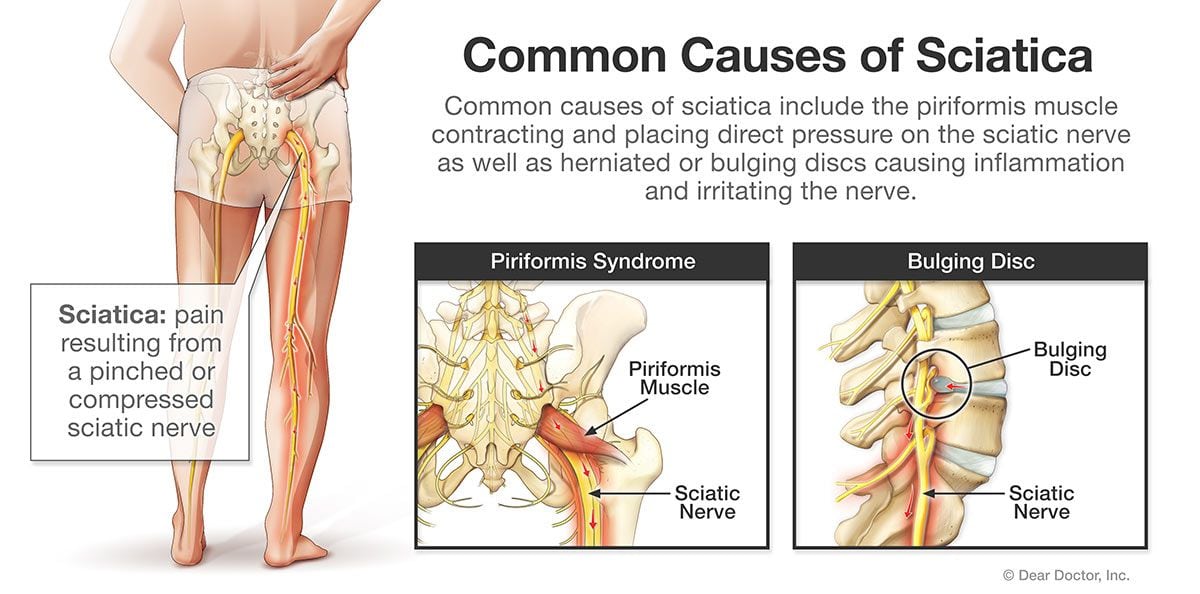Sciatica is pain due to a pinched or compressed sciatic nerve. The pain typically radiates from your lower back to your buttock and down the back of your leg, usually on only one side of the body. The pain may be mild or it can feel intense—like burning or even an electric shock. As many as 40% of people will have sciatica at some time in their life, and it most often occurs between the ages of 30 and 50.
Sciatica may go away on its own, but treatment can shorten the duration of the episode and relieve pain without drugs or surgery. Here’s more information on this common complaint and how Houston Advanced Spine can help.
Causes and Symptoms of Sciatica
The sciatic nerves are the longest and largest nerves in your body. They’re slightly larger than the width of your little finger and travel all the way from the lumbar (lower) spine through the pelvis and then branch down each leg. These multi-purpose nerves transmit sensation and control to the muscles of the lower leg and also deliver sensation to the sole of the foot, ankle and back of the thigh.

There are several reasons why people develop sciatica. A muscle that helps you rotate your hip, called the piriformis muscle, connects your lower back to your thigh bone and covers the sciatic nerve. Like all muscles, the piriformis is made up of many fibers, like a rope. Injury or overuse causes them to contract and place direct pressure on the sciatic nerve.
Sciatica can also be the result of a lumbar spine or sacroiliac subluxation (misaligned vertebrae or hips), a bone spur, pregnancy, obesity, diabetes or stenosis (narrowing of the spinal canal). Herniated or bulging discs are another common cause of sciatica. The interior of the discs contains substances that can cause inflammation and irritate the nerves.
Sciatic pain may increase when you sneeze, cough or sit for long periods. Standing on hard surfaces can also aggravate sciatica, while walking or lying down could ease the pain temporarily. Many cases of sciatica go away within a few weeks, but the pain can occasionally last for months.
